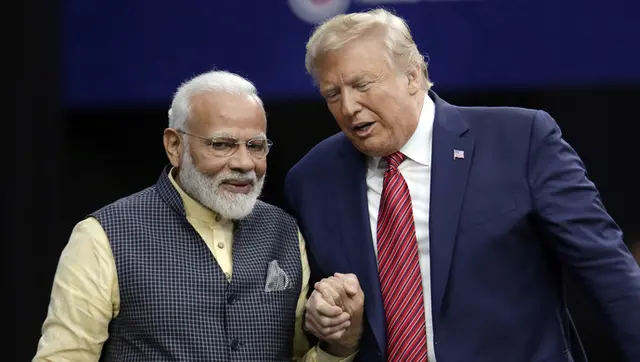Editor's note: the author is Prof. Engr. Zamir Ahmed Awan, Sinologist (ex-Diplomat), Editor, Analyst, Non-Resident Fellow of CCG (Center for China and Globalization), National University of Sciences and Technology (NUST), Islamabad, Pakistan.
Amidst border clashed between India and China, the US offered a cold shoulder. India tried to seek support from the US and Western World, but no one was willing to extend any kind of support to India against China.
India had high expectations as a "Major Defense Partner" with the US and allied in the "Indo-Pacific Treaty" with the US, Japan, and Australia. India was expecting that NATO or US-Troops will reach to support India. Since the last decade, at least, the US was extending its full support to India and up-lifting India to compete with China, Counter China, Contain China and resist China's rise. But when the actual confrontation started, where two countries were on the verge of war, the US has offered a cold shoulder.
Although the US President Trump offered to mediate between China and India to settle the border dispute, this offer was rejected by India as well as China immediately. In fact, the mediation offer was just a formality and lacking sincerity.
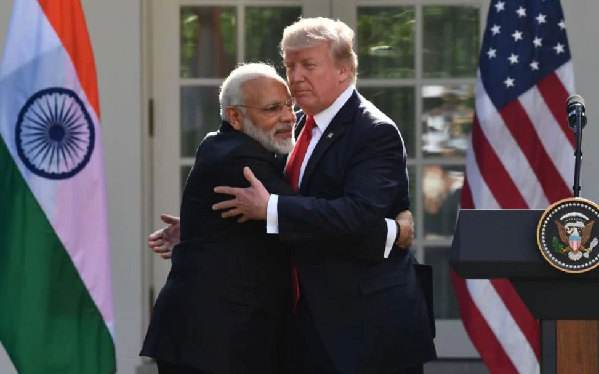
India contacted Japan and Australia too, but could not seek any support. India also tried to seek support from the EU, but all their expectations were shattered. India itself was having no capacity to face China alone. India still remembered the lessons learned in the 1962 war with China and would not like to experience it again. In fact, China has developed a lot since 1962, and the gape has grown huge. Either it is on the economic front, technology, defense, or political, India lacks behind too far.
Traditionally, India was in the former USSR block in the 1950s, 1960s, 1970s & 1980s, and was the largest beneficiary of USSR assistance. India was meeting its defense requirements from the USSR, weapons, defense Industry, and training of armed forces; India was a dependant of the USSR. Economic assistance, transfer of technology, political and diplomatic support all was dependant on USSR.
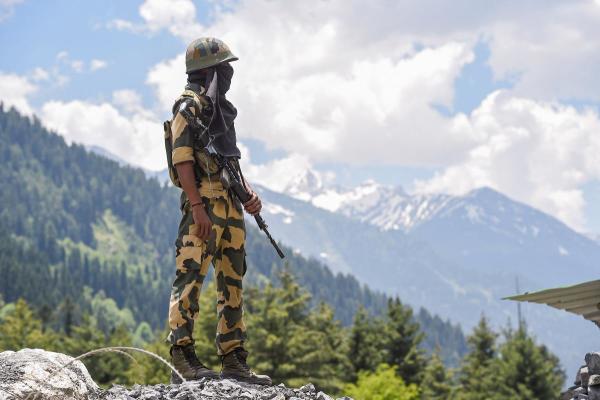
But, after the disintegration of the former USSR in 1991, India changed its mind and tried to seek closer ties with the US. India lobbied in America and created some politicians and senators, who can promote Indian interests in the US. After extensive marketing, India finally convinced the US.
India signed a civil nuclear deal with the US, then signed a Major defense Partner, and then Ally in the Indo-Pacific Alliance. The US opened its doors to India to seek advanced technology and hi-tech. Indian students got admission in the US Universities n priority. Indian experts were generously offered a work visa to the US. Trade concessions and economic assistance was always packaged to Indo-US relations. The US was very generous toward India and extending political and diplomatic support to India. As a matter of fact, the US was preparing and strengthening India to compete with China, Contain Chian, Counter China, and resist China's rise.
Very soon, the US learned that India has no capacity to counter China, not has any intension to compete with China. India wanted to get maximum benefits from its friendship with the US and utilize all benefits gained against its small neighbors like Nepal, Bangladesh, Pakistan, Sri Lanka, Myanmar, and Maldive. India wanted to create its hegemony only with its small neighbors. Indian behavior in Afghanistan was not satisfactory, where India was getting maximum benefits but was not meeting the American's expectations. President Trump was annoyed with PM Modi over his repeated story of building a library in Kabul, whereas President Trump wanted to see Indian troops in Afghanistan.
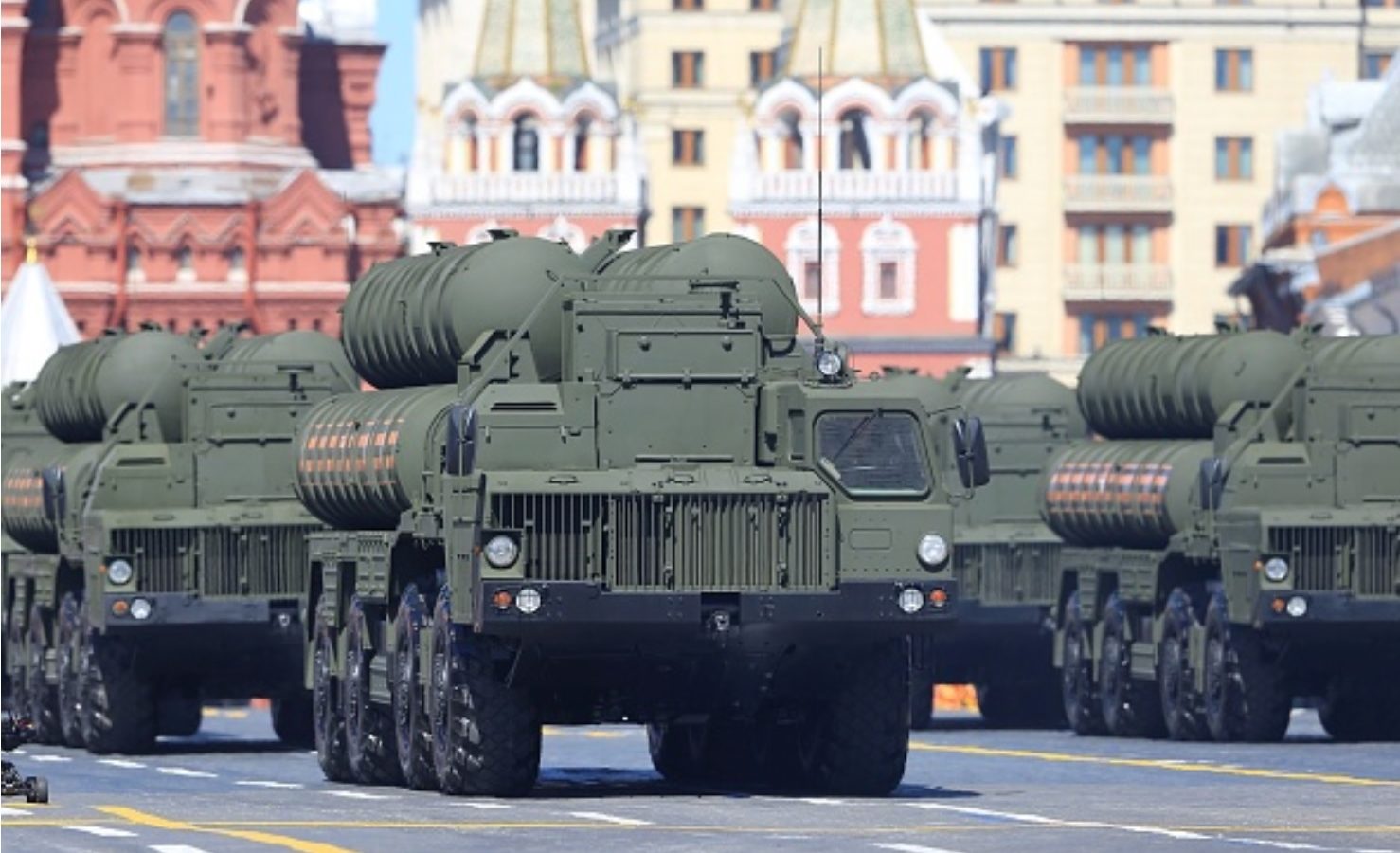
India turned its face from Russian after 1991 disintegration, thinking that Russian can not give any benefit to India. There was a feeling that Russia is redundant and impotent and useless to keep close ties. Recently, India wanted to purchase S-400 from Russia but was facing huge pressure from the US, and Indian media was biased against Russian Weapons and Technology. Especially, Indian experts were projecting that S-400 contains Chinese origin electronic systems and Chinese spare parts of poor quality.
While on the other hand, India was meeting its defense need from the US, France, and the Western World, which was very expensive and proved an unbearable burden to the Indian economy. In fact, the US and the West have been fooling India and gaining economic gains, and at a time of need, when India was in conflict with China, they backed out. There is a saying that "when you have American friends, you do not need enemies."
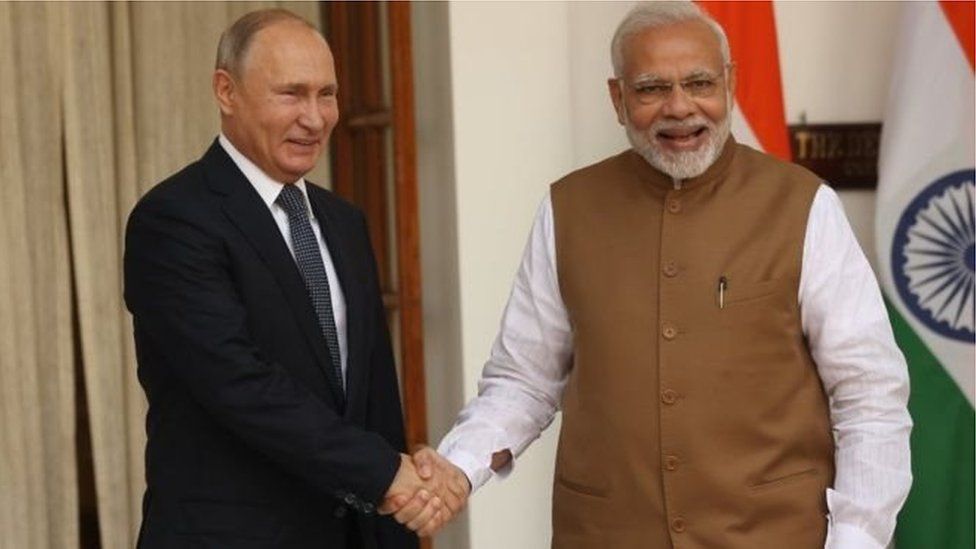
Now, India is desperate totally and looking backward to Russia. Russia is going to celebrate its Victory day, and have not invited Indian leadership, but India, on its own, without any formal invitation, is going to send a small contingent of Army, Navy, and Airforce of a junior level to participate in Russian Victory day parade. Indian Defense Minister is also in Moscow to attend at his own request, without any formal invitation from the Russian side. It seems that The Indian defense Minister is in Moscow to apologize to Russia and wanted a way out to restore normal relations. India might attract Russia with some purchase of Russian weapons, but Russia is in a strategic partnership with China and can not ignore Chinese interests. Russia is also very close to Pakistan and can not ignore Pakistan's interests too.
India might succeed in a defense deal of low profile. Russian lollypop may serve the purpose too. India is extremely desperate and disappointed with the US and West. Indian decision to sent its troops in Russian victory day parade and its defense minister's visit at this particular time may be to give a signal to the US and its Western Allies that if they do not care Indian, the option of restoring its relations with Russia still exists. India wanted to target two birds with one arrow, on the one hand, wanted to keep happy its old ally Russia and put pressure on its new allies, the US and Western World.
I believe it will not work out at all, as India itself was not sincere with the US and Western World, and yet expecting them to be sincere with India is rather irrational. I think first India has to learn to be sincere with others and then expect other's sincerity. It is not good neither so easy to fool others.
(ASIA PACIFIC DAILY)
 简体中文
简体中文

